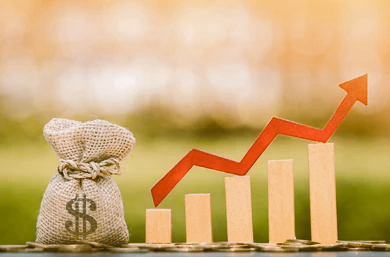Startup valuation is one of the most crucial yet misunderstood concepts in the world of entrepreneurship. Whether you’re a founder, investor, or just curious about how companies are priced, understanding how startup valuation works before and after funding rounds can give you valuable insights into business growth and financial strategy.
In this blog post, we’ll explore what startup valuation is, the factors that influence it, and how it changes through each stage of funding.
What Is Startup Valuation?
Startup valuation is the process of determining how much a startup is worth at a given point in time. This valuation is typically done before and after a funding round to set the terms of investment and equity ownership.
Valuation is especially critical because it affects how much equity a founder must give up in exchange for capital. A higher valuation means less dilution for the founders and early investors, while a lower valuation might mean giving up more ownership for the same investment.
Pre-Money vs. Post-Money Valuation
Before diving into the mechanics, it’s important to understand two key terms:
- Pre-Money Valuation: The value of the startup before new funding is added.
- Post-Money Valuation: The value of the startup immediately after new funding is added.
The formula is simple:
Post-Money Valuation = Pre-Money Valuation + New Investment
For example, if a startup has a pre-money valuation of $5 million and raises $1 million in funding, its post-money valuation becomes $6 million.
How Valuation Works Before Funding Rounds
1. Idea and Seed Stage
At this early stage, startups often have little or no revenue, so traditional valuation metrics like earnings or cash flow don’t apply. Instead, investors rely on factors such as:
- Strength of the founding team
- Market potential
- Product or prototype
- Traction (e.g., user growth, early revenue)
- Comparable startups in the same industry
Valuation at this stage is often negotiated and driven more by storytelling and potential than hard numbers. Seed-stage startups typically have valuations ranging from $1 million to $6 million.
2. Series A and Beyond
As startups progress into Series A, B, and later rounds, valuations become more data-driven. Investors look at:
- Revenue and revenue growth
- Gross margins
- Customer acquisition cost (CAC) vs. customer lifetime value (LTV)
- Market traction
- Competitive advantage
- Financial projections
Valuation methods may include:
- Discounted Cash Flow (DCF): Projects future cash flows and discounts them to present value.
- Comparable Company Analysis: Compares the startup to similar publicly traded companies or recently acquired startups.
- Scorecard or Risk Factor Summation: Combines multiple factors to assess risk and opportunity.
How Valuation Changes After Funding Rounds
Every time a startup raises a new round, its valuation changes based on the capital invested and the company’s perceived progress.
Example Scenario:
Imagine a startup with the following trajectory:
- Seed Round: Raises $1 million at a $4 million pre-money valuation → Post-money valuation = $5 million
- Series A: Raises $5 million at a $10 million pre-money valuation → Post-money valuation = $15 million
- Series B: Raises $20 million at a $30 million pre-money valuation → Post-money valuation = $50 million
At each stage, if the startup meets or exceeds milestones (such as revenue targets, market expansion, or product development), its valuation typically increases. This is because investors are willing to pay more for a company that has reduced risk and demonstrated traction.
Dilution and Ownership
One key effect of funding rounds is dilution. When new shares are issued to investors, the percentage ownership of existing shareholders (including founders) decreases.
However, if the valuation increases significantly between rounds, the value of each shareholder’s stake may still rise despite owning a smaller percentage.
For example, a founder may own 50% of a company worth $1 million. After raising funds and getting diluted to 30%, their stake is still worth more if the company’s valuation has increased to $10 million.
Final Thoughts
Understanding how startup valuation works is essential for both founders and investors. Before funding rounds, valuation is mostly about potential, vision, and market size. After funding rounds, it’s about performance, metrics, and risk-reward dynamics.
By grasping the nuances of valuation and funding mechanics, founders can better negotiate deals, plan growth strategies, and protect their equity. Meanwhile, investors can make smarter, more informed decisions about where to place their capital.
As the startup evolves, so does its value — and managing that journey effectively can make all the difference between a good idea and a successful business.
Who we are: Funded.com is a platform that is A+ BBB accredited over 10+ years. Access our network of Angel Investors, Venture Capital or Lenders. Let us professionally write your Business Plan.





 Rss Feed
Rss Feed


